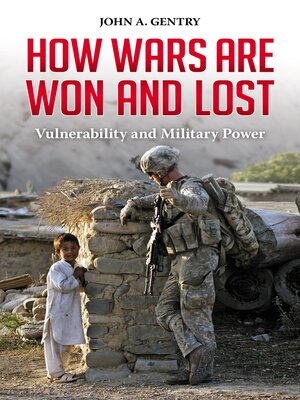How Wars Are Won and Lost
ebook ∣ Vulnerability and Military Power · Praeger Security International
By John A. Gentry

Sign up to save your library
With an OverDrive account, you can save your favorite libraries for at-a-glance information about availability. Find out more about OverDrive accounts.
Find this title in Libby, the library reading app by OverDrive.



Search for a digital library with this title
Title found at these libraries:
| Library Name | Distance |
|---|---|
| Loading... |
This provocative book seeks to answer a most crucial—and embarrassing—question concerning the U.S. military: why the United States is so often stymied in military confrontations with seemingly weaker opponents, despite its "superpower" status.
This fascinating book examines a question that continues to puzzle soldiers, statesmen, and scholars: why do major powers—including the ostensible superpower United States—repeatedly perform poorly against seemingly overmatched adversaries? And what can they, and the United States, do to better achieve their military objectives?
How Wars are Won and Lost: Vulnerability and Military Power argues that beyond relying solely on overwhelming military might, the United States needs to focus more on exploiting weaknesses in their adversaries—such as national will, resource mobilization, and strategic miscues—just as opposing forces have done to gain advantage over our military efforts. The author tests the "vulnerability theory" by revisiting six conflicts from the Philippine War of 1899-1902 to the ongoing actions in Iraq and Afghanistan, showing again and again that victory often depends more on outthinking the enemy than outmuscling them.
This fascinating book examines a question that continues to puzzle soldiers, statesmen, and scholars: why do major powers—including the ostensible superpower United States—repeatedly perform poorly against seemingly overmatched adversaries? And what can they, and the United States, do to better achieve their military objectives?
How Wars are Won and Lost: Vulnerability and Military Power argues that beyond relying solely on overwhelming military might, the United States needs to focus more on exploiting weaknesses in their adversaries—such as national will, resource mobilization, and strategic miscues—just as opposing forces have done to gain advantage over our military efforts. The author tests the "vulnerability theory" by revisiting six conflicts from the Philippine War of 1899-1902 to the ongoing actions in Iraq and Afghanistan, showing again and again that victory often depends more on outthinking the enemy than outmuscling them.







